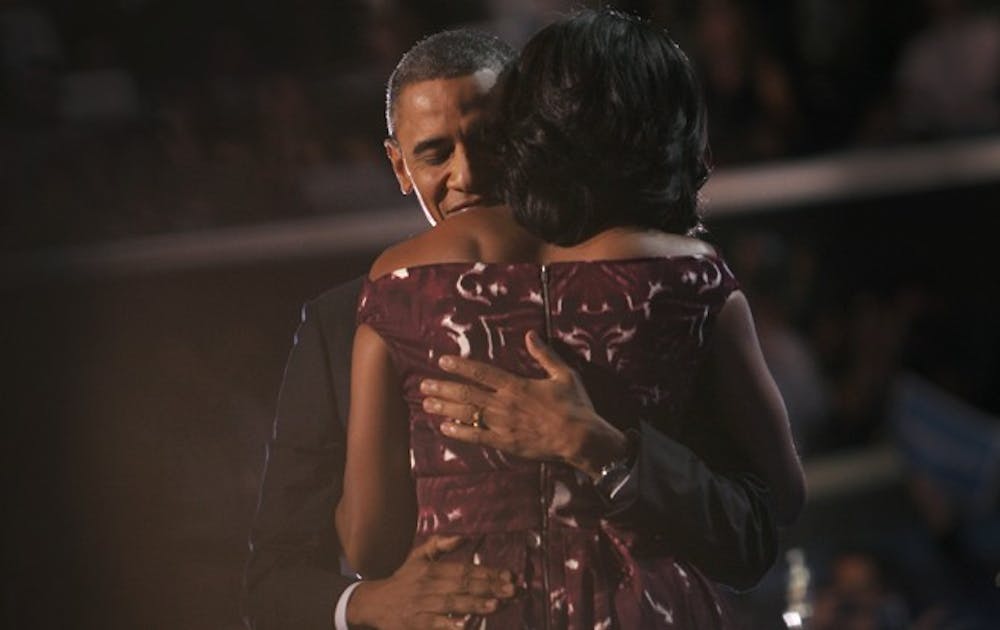CHARLOTTE—In his acceptance of the Democratic presidential nomination, President Barack Obama framed the 2012 election as one notably different from those in recent history.
Obama outlined his goals for a potential second term and his administration’s accomplishments to date. Manufacturing increases, clean energy, education, national security and deficit cutting comprised his outlook. He spoke at length on foreign policy achievements such as the death of Osama bin Laden and the end of the Iraq War.
“On every issue, the choice you face won’t be just between two candidates or two parties,” he said. “It will be a choice between two different paths for America—a choice between two fundamentally different visions for the future.”
The opposing choices theme echoed imagery in speeches by President Bill Clinton, Vice President Joe Biden and women’s rights activist Sandra Fluke earlier this week.
First lady Michelle Obama introduced the president, who took the podium amid deafening roars from the crowd. Time Warner Cable Arena was at absolute capacity, leaving little room to walk freely.
In his remarks, Obama touched on the themes of hope and change from his 2008 campaign. He characterized the deeds of Americans as the source of his hope, whether an auto worker winning the lottery or a woman overcoming homelessness through her nationally recognized biology research.
“The truth is, it will take more than a few years for us to solve challenges that have built up over decades,” Obama said. “If you turn away now, if you buy into the cynicism that the change we fought for isn’t possible… well, change will not happen.”
Obama highlighted his experience and asserted his dominance as the incumbent in a presidential race.
“I’m no longer just a candidate—I’m the President,” Obama said.
Obama’s remarks cemented party unity and the success of the convention, said U.S. Rep. David Price (D-NC).
“President Obama made it clear tonight what our choice is between,” Price said in an interview. “The differences are so stark this time. We are definitely coming out of this convention renewed in our determination.”
Obama also came out strong on social issues, including the DREAM Act and women’s rights, recurring themes of the convention.
“We don’t think government can solve all our problems,” he said. “But we don’t think that government is the source of all our problems—any more than are welfare recipients, or corporations, or unions, or immigrants, or gays, or any other group we’re told to blame for our troubles.”
Convention attendee Gunther Peck, Fred W. Shaffer associate professor of history and public policy, said Obama’s speech made the clearest possible case for his reelection.
“He had a balance to strike between offering more hope, which will not get him reelected, but also he really was describing what he thought he had done well,” Peck said.
Obama began speaking with a detectable sense of hesitation, but as the speech continued the president began to loosen and gain a rhythm, feeding off of the crowd’s energy.
As Obama wrapped up his remarks, the crowd’s applause escalated to the point where those in the back strained to hear the president conclude.
“If you believe in a country where everyone gets a fair shot, and everyone does their fair share, and everyone plays by the same rules, then I need you to vote this November,” Obama said.
Get The Chronicle straight to your inbox
Signup for our weekly newsletter. Cancel at any time.

